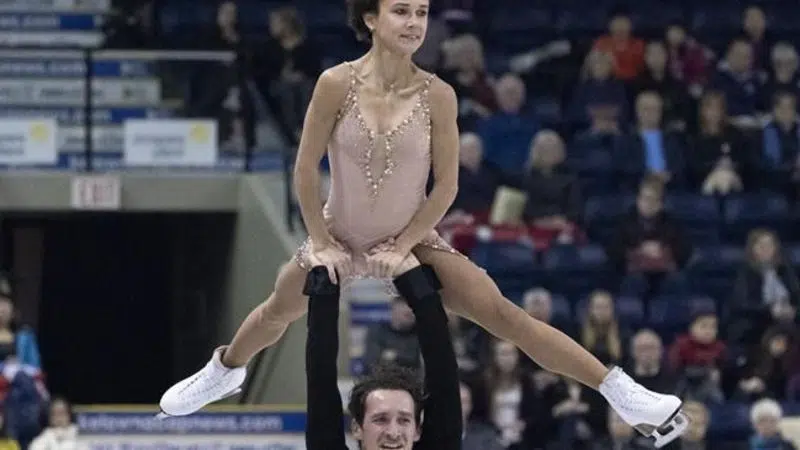
Grand Prix bronze solid start for new pairs team Ilyushechkina, Bilodeau
Their partnership began with a Facebook message.
Canada’s Lubov Ilyushechkina and Charlie Bilodeau were both without figure skating partners last season. Ilyushechkina was performing with Cirque de Soleil on an eight-month contract after pairs partner Dylan Moscovitch retired following the 2017-18 season. Bilodeau split with partner Julianne Seguin soon after the 2018 Pyeongchang Olympics.
Their figure skating futures were in doubt, but both knew they still have more to give.
Bilodeau messaged Ilyushechkina on Facebook and suggested a tryout, and the two instantly clicked. Last weekend, the two won bronze at the Cup of China in only their second Grand Prix.


